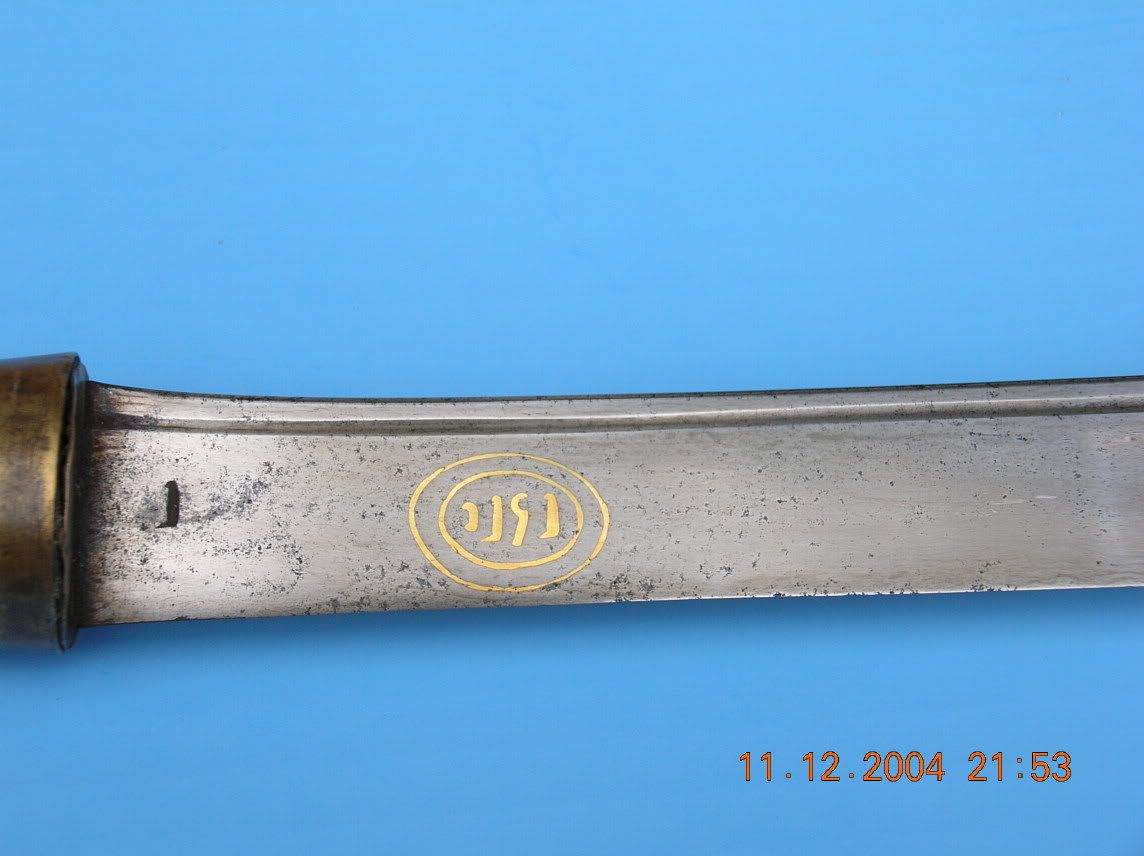
 |
|
|
|
|
#1 |
|
Member
Join Date: Jun 2006
Posts: 161
|
Why posting this? I was discussing kris etc. on another board and a person from Indonesia mentioned he'd never seen any. Here are two weapons which both came from the Philippines. The short one, a punang?, came back with my dad in 1945, and I think I got the long one, the kris, in Manila in 1973.
I'd like to know if southeast Asian edged weapons inlaid with various metals are unique to the Philippines, or what. The punang (dagger) has brass and copper inlaid into grooves in the blade. The kris has a serpant or dragon-like recessed shape, the "scales" of which are inlaid with a silver-colored metal. Thanks in advance! |
|
|
|
|
#2 |
|
Member
Join Date: Dec 2004
Posts: 987
|
Brass and copper inlay is fairly common in continental Southeast Asia, though not usually as elaborate as what you have on your kris. It is common to see a section along the spine that is inlaid with a brass or copper slug (sometimes both, see below), and inlaid writing is also fairly common. Elaborate decorative designs are more often incised or in koftgari, I think.
A dha with brass & copper slugs in the spine:  A dha with inlaid writing on the spine, and also koftgari:  This is the most beautiful inlay I have seen on a dha blade (this one belongs to John "RhysMichael"):  Here is an inlaid date on one of Andrew's: 
|
|
|
|
|
#3 |
|
Member
Join Date: Dec 2004
Location: Cincinnati, OH
Posts: 940
|
Nice work on the kris. It looks like a mid-20thC piece to me, but of a higher standartd than most from this period.
The knife is known as a gunong AFAIK. Sometimes called a punal, but if i am not mistaken that is a Spanish, and therefore less indiginous term. Nice work on that as well. 
|
|
|
|
|
#4 |
|
Member
Join Date: Jun 2006
Posts: 161
|
Thanks for taking the time to post the very interesting pictures. They answer the question so much better than just words.
|
|
|
|
|
#5 |
|
Member
Join Date: Dec 2004
Location: Cincinnati, OH
Posts: 940
|
You know, the more i look at the pics of the kris the more it looks like there just might be a really well fitted seperate gangya on it, in which case i might change my age assessment. Is it a seperate piece? I have one that for years i thought was one piece until i etched it one day and found the tight seem.

|
|
|
|
|
#6 |
|
Member
Join Date: Jun 2006
Posts: 161
|
No the steel blade seems to be all one piece. The serpent thing was carved into the basic blade. I don't see any way it could be a separate piece when I look at both ends of the serpent. The ends simply merge smoothly into the steel of the blade with no change in appearance.
Anyway, when I looked at it all under magnification, it sure looked antique to me. There are so many different metals and materials in it, the handle, etc, and they all look like they should, to me anyway, if antique. |
|
|
|
|
#7 | |
|
Vikingsword Staff
Join Date: Nov 2004
Posts: 6,339
|
Quote:
What nechesh meant by a separate piece was this area pictured below . 
|
|
|
|
|
|
#8 |
|
Member
Join Date: Jun 2006
Location: Ubud, Bali, Indonesia
Posts: 16
|
This kris from the Philippines is quite different from its Indonesian counterparts. Of immediate note is that the blade maintains the same width the entire length of the blade. As the kris is predominately a stabbing weapon, that seems rather impractical and the unnecessary weight would add additional strain on the tang. Aesthetically, the handle almost appears ridiculous in concert with its blade, or way out of balance. Another noticeable difference is that there does not seem to be any pamor worked into the iron. A final observation is that the formation of the luk is not like the smooth flow seen in Indonesian kris, in fact the top of the curves almost appear to be pointed. .
This is the first I have seen a kris from the Philippines, so these are just my initial observations, and they are not intended to “knock” or criticize. Thanks for posting those photos! |
|
|
|
|
#9 |
|
Member
Join Date: Jun 2006
Posts: 161
|
I'm pretty sure that in the Philippines, the kris, at least of the type I posted, was used as a side-cutting or slashing weapon primarily. The blades are rather thick in the middle, and heavy, and have lots of momentum if they are swung. The US Army found this out to their dismay ca. 1900. It is pretty well documented that the Moros armed with these would swing them to strike the soldiers between the neck and shoulder, and many of those deep wounds were mortal. The Filipino, or Moro kris would not be too efficient for stabbing due to relatively blunt end, but the blade was sharpened all around so they could do that also.
|
|
|
 |
| Thread Tools | Search this Thread |
| Display Modes | |
|
|